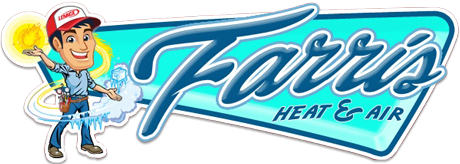
Ever done a double take when you took a look at your last energy bill? Although high energy bills can be the end result of severe weather events, repeatedly high bills can quickly indicate an inefficient HVAC system or your home is wasting energy because of other means, like drafty windows or inadequate insulation.
An easy way to identify whether your home is using too much energy is by hiring a home service expert to complete a home energy audit, also called a home energy assessment. Keep reading to learn more about home energy audits, including what they are and their advantages.
What Is a Home Energy Audit?
An energy audit is a thorough inspection of how much energy your home uses and whether – and where – your home might be losing or wasting energy. An inspector will review older energy bills during an energy audit to figure out where energy is being wasted and how much.
The overall goal of an energy audit is to help homeowners save money on their energy bills by recommending energy-efficient renovations, which might include exchanging your existing HVAC system, adding new insulation, plugging up leaks, or replacing old windows.
During the energy assessment, the auditor also completes an inspection of the outside and inside of your home. The auditor will perform a blower door test on doorways, windows and fireplaces to figure out if there are air leaks in your home. They’ll also evaluate your home’s HVAC system, which also includes the ductwork, the water heater, and the insulation in your attic. Some assessments may also include checking your current lighting system.
Benefits of a Home Energy Audit
It can be hard for the average homeowner to know for sure how efficient their home is in comparison to other similar homes in their neighborhood. However, lots of energy companies often offer information about where your home is ranked when compared with similar homes and whether it’s more efficient, about average, or inefficient compared to your neighbors’ homes. This can be a useful starting point to determine if you need an energy audit scheduled.
Some of the benefits of a home energy audit include:
Learning How Efficient Your Home Is
It’s good to understand how efficient your home is and where you’re using the most energy. For example, if your ducts are damaged, it can cause a sizable increase in your energy bills and excessive wear and tear on your HVAC system since it has to work longer to completely heat or cool your home.
Making Energy-Efficient Updates
An energy audit should expose where you need to make energy-efficient changes to cut back on energy and reduce utility bills. This might include replacing worn-down weatherstripping or getting a new energy-efficient furnace.
Enhancing Health and Safety
Enabling air to slip into your home through doors and windows, or as a result of a lack of insulation can cause unwanted moisture to appear, which can negatively affect your home’s humidity levels or lead to mold. This can lead to health issues, particularly for people dealing with asthma or allergies.
Increasing Your Home’s Retail Value
Energy-efficient homes are preferred by homebuyers. You can sell your home more quickly or for more money by telling prospective buyers that it’s energy efficient.
How to Complete an Energy Audit of Your Home
Although completing an energy audit independently will not be as thorough as hiring a professional, it’ll offer you a broad understanding of how energy efficient your home is. If you don’t find any problems during the DIY test, then you potentially don’t need to call in a professional. Follow this step-by-step checklist:
- Review your HVAC system. Leaky ducts can lose as much as 20% of conditioned air, leading to steeper energy bills and greater strain on HVAC equipment. If you find leaks, use duct tape to plug them. If your HVAC equipment is old and inefficient, upgrading to a new system can save you a significant amount on your energy bills. In some cases, it is better to call a reputable HVAC company to inspect your system.
- Look for air leaks. Air leaks on average can increase your energy bills by 10 to 20%. Inside, look for air leaks in areas where there could be a draft, like along the edge of flooring and along baseboards and electrical outlets. Outside, you can look for air leaks along the home’s foundation, siding and mortar. Plug, caulk or seal any air leaks to save money.
- Examine insulation. If your home is older, it could mean your insulation is too. If you can see the joists, you likely need more insulation.
- Check ventilation. Check that all of your kitchen and bathroom exhaust fans are spinning properly, and check for evidence of rot or moisture.
Contact Farris Heating & Air for a Professional Energy Audit
If you are interested in professional help figuring out how energy efficient your heating and cooling equipment is, call the HVAC pros at Farris Heating & Air today. We’ve proudly supported the residents of Bartlesville with quality home services for a long time. Contact us today to set up an appointment.
